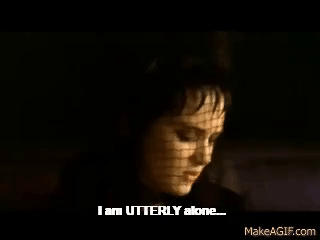Is our aversion to suffering destroying us?
My Liberation Notes
This piece is part of a new series for paid subscribers to share my experiences and learning that have contributed to Hacking Narcissism’s educational content and my worldview about the human condition and culture. Our stories, when read in good faith, can help us feel seen, less alone, more connected, restore empathy and humanity.
Once upon a time I wanted to be a full-fledged scientist with my own lab, grants, grad students, postdocs and faculty appointment at a university, exploring the mysteries of the universe held in our biology, and most importantly, to bring an end to suffering.
I always felt like an outsider and at times treated as one by my own ‘tribe’. Never feeling good enough to fit in made me yearn to fit in. This yearning was a seemingly endless source of suffering throughout adolescence until the end of the ritual torture that I call high school.
Being a biologist, no - a DEVELOPMENTAL and SYSTEMS biologist was my ticket to Specialdom and Importanceland where I would know more stuff about a blip of biology than anyone ever. As I got steps closer to my dreams, I continued to suffer feeling like the odd one out pursuing an area of interest that few cared about. I felt so alone despite having a husband, close family ties, friends and lovely peers. I also felt so alone seeing the dysfunction in the leaders around me. There was not one female model I wanted to emulate and was constantly disappointed by the gendered favouritism (this is Australia, mate) that was less obvious to me growing up in Canada.

I was doing, saying (and not saying) and witnessing things that violated my principles to seek validation and get ahead, plunging me into a deeper pit of suffering than all the other times in my life. I suffered being a never good enough mother to two young daughters juggling full time research life with poor boundaries. I suffered never feeling adequate anywhere. I suffered and went numb to protect myself from the continuous assault on my values that I experienced while pursuing this noble career path (more on this in a future post).
En route to pulling the plug on my dreams, I’d become intrigued by the psychosocial impacts of working with cancer patients (I was in a cancer research centre at the time) and the suffering of medical professionals as a result. This was early 2011 and doctors were not talking about their suffering, let alone publicly virtue signalling about it on Twitter or LinkedIn. My intrigue about the causes of doctors’ distress and why society’s heroes (pre-covid times, of course) had one of the highest substance addiction, mental illness and suicide rates of any profession turned into full blown obsession. My desire to understand suffering among those who continued to tell me they felt such a privilege for being able to help sick people became an unofficial research project. In listening to their stories about the reality of working with children and adolescents with cancer as well as those who survived, perhaps I would gain insight into my own story and my suffering of unknown causes.


